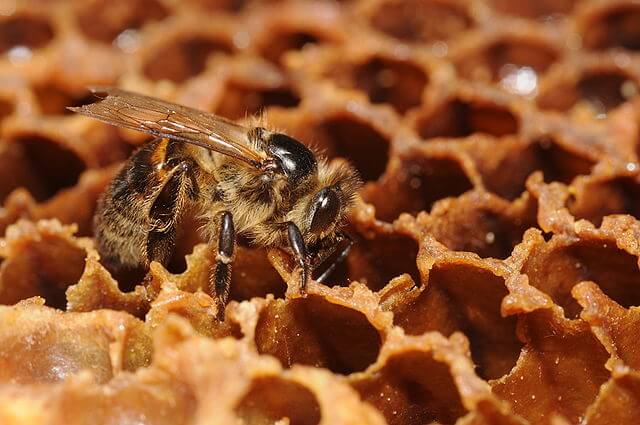
In recent years, beekeepers nationwide have grappled with a puzzling dilemma: where has all the honey gone?
Scientists now shed light on the declining honey yields, attributing it to widespread environmental degradation affecting various bee species and insects at large.
US government data reveals a stark reality: the average honey production per colony has plummeted by approximately half a pound over the past decade, despite a slight uptick in managed colonies.
“You go to meetings with beekeepers and you’ll hear all the time they are not producing honey like they used to,” said Gabriela Quinlan, a research fellow in Penn State’s department of entomology and centre for pollinator research. “It’s something we see across the board in different states.”
A recent study, spearheaded by Quinlan, delves into the intricacies of factors influencing flower growth in different regions, a pivotal determinant of honey production post-foraging for honeybees. Nectar, pollen, and water, sourced from the surrounding environment, are vital ingredients for honey production.
The research identifies several impediments hindering honeybees’ honey-making prowess, including a surge in herbicide usage, the conversion of once flower-rich land into monocultural farmland, and a decline in soil fertility.
Climate change emerges as a chief culprit, wreaking havoc on beekeepers and their colonies since the early 1990s, with soaring temperatures, erratic rainfall patterns, and extreme weather events disrupting ecosystems.
“It’s just so weather-dependent,” said Christina Grozinger, study co-author and Penn State entomologist. “It’s not just getting warmer and wetter, there are also these extreme events that mean you don’t know what weather you’ll be getting.
“You can’t really manage for that. We can manage the land in terms of reducing pesticides but long term we are going to have to think about what plants we can plant with these changing climatic conditions.”
Recent winters witnessed severe losses in honeybee colonies, compounded by habitat destruction, the climate crisis, pesticide exposure, and disease outbreaks.
This broader crisis affecting bees and insects poses a grave threat to food production and ecosystem stability unless promptly addressed, as cautioned by researchers. Urgent action is imperative to mitigate these challenges and safeguard bee populations and ecological equilibrium.
“It’s going to become more economically challenging to be a beekeeper but these changes are also an indication there will be less of these floral resources on the landscape for other bees and pollinators too,” said Grozinger.
——————————————————————————
At Natural World Fund, we are passionate about stopping the decline in our wildlife.
The decline in our wildlife is shocking and frightening. Without much more support, many of the animals we know and love will continue in their decline towards extinction.
When you help to restore a patch of degraded land through rewilding to forests, meadows, or wetlands, you have a massive impact on the biodiversity at a local level. You give animals a home and food that they otherwise would not have had, and it has a positive snowball effect on the food chain.
We are convinced that this is much better for the UK than growing lots of fast-growing coniferous trees, solely to remove carbon, that don’t actually help our animals to thrive.
This is why we stand for restoring nature in the UK through responsible rewilding. For us, it is the right thing to do. Let’s do what’s right for nature!
Donate today at https://naturalworldfund.com/ and join in the solution!

